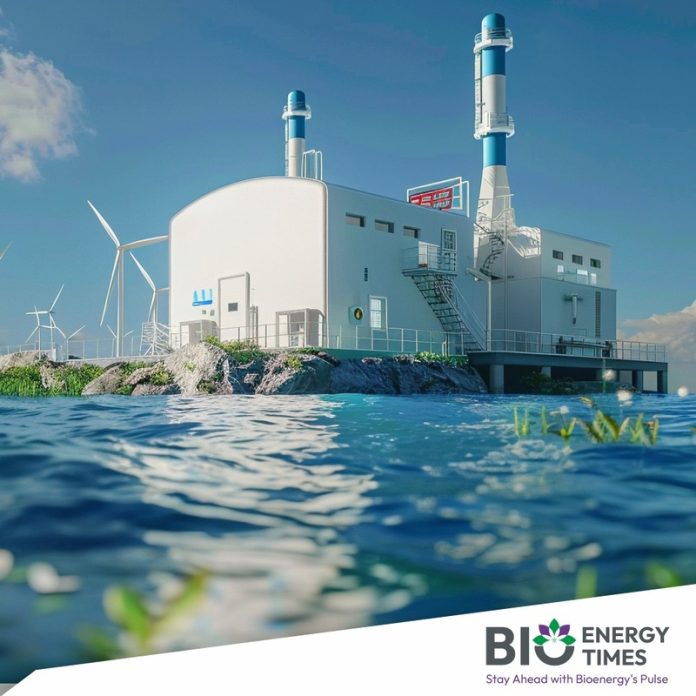Proteus Energy, headquartered in Singapore, has developed the Proteus® Maritime Fuel Cell Solution, a modular hydrogen fuel-based system for ports and vessels. The first offering is the Proteus®75. Each fuel cell stack is 75 kW output, and these can be combined for larger power requirements. The vessel types being targeted are harbor craft, and vessels in the coastal, offshore support, and in-land waterway segments.
The technology has been developed in partnership with Symbio France, a world leading hydrogen fuel cell company with over 30 years track record. Symbio is jointly owned by global industrial groups Michelin, Stellantis, and Forvia.
“The maritime industry needs viable clean energy solutions today,” said Dr Lars Gruenitz, CEO of Proteus Energy. “We are providing a high energy density solution that is compact and lightweight, which is critical for vessels where space and weight considerations are imperative. This best-in-class system is the logical and most cost-effective choice to help operators make a quantum leap in their decarbonization efforts”.
The Proteus® Maritime Fuel Cell Solution can be delivered as a modular powerpack or customized and fitted into vessels.
Benefits include:
- Zero tailpipe emissions
- Negligible noise or vibration
- Low maintenance cost due to few moving parts and no lubrication oil consumption
- Fast refueling time compared to slower battery charging time
- Hydrogen fuel can be stored for long time periods without any loss versus batteries which lose energy (even if not in use) and need to be regularly recharged
Proteus’ fuel cell technology also complements electric propulsion and offers a powerful solution for hybrid vessels by extending their range and easing the load on batteries, thus improving space efficiency and vessel performance.
Proven on roads and now customized for the sea
The Proteus® Maritime Fuel Cell Solution will be backed by a two-year performance guarantee from Symbio France.
Symbio’s systems have already logged millions of kilometers powering cars, buses and commercial trucks across Europe. Now, that same rigorous, road-tested performance is being deployed at sea with added protections for marine operating conditions.
Global-Scale Manufacturing with Automotive Production Line Precision
The fuel cell stacks are produced at Symbio’s gigafactory in Lyon, France, using state-of-the-art robotic assembly systems capable of producing thousands of units annually.
This high-throughput capability ensures that Proteus can meet rising demand without sacrificing quality – something only established and proven hydrogen fuel cell manufacturers can claim.
What also sets Proteus apart is its ability to bring economies of scale, continuous R&D, and tried and tested reliability from land transport into the marine environment. For example, Symbio tests over 2,000 fuel cell membranes each year -enabling faster upgrades and long-term performance enhancements – something new players in the market are not able to do.
Hydrogen fuel tank storage
To provide a convenient fuel storage option, Proteus also offers state-of-the-art high-pressure hydrogen storage tanks developed with its partner Forvia, a major global components and technology company. The DNV type-approved tanks, which are already available for delivery, offer a safe and easy way to store hydrogen onboard vessels and will be produced on an industrial scale.
In addition, Proteus works with port operators to provide them with customized refueling solutions and infrastructure.
“As regulators push towards zero emissions, ports and vessel operators face immense pressure to act now. With our proven technology and system designed for practical integration, we can assist our customers to meet their emission targets ahead of schedule and future-proof their business,” said Dr Gruenitz.
Deployment Roadmap
The Proteus® Maritime Fuel Cell Solution is expected to be available for delivery beginning January 2026, with type approval from DNV anticipated before the end of this year. Proteus is ready to work with customers now.















